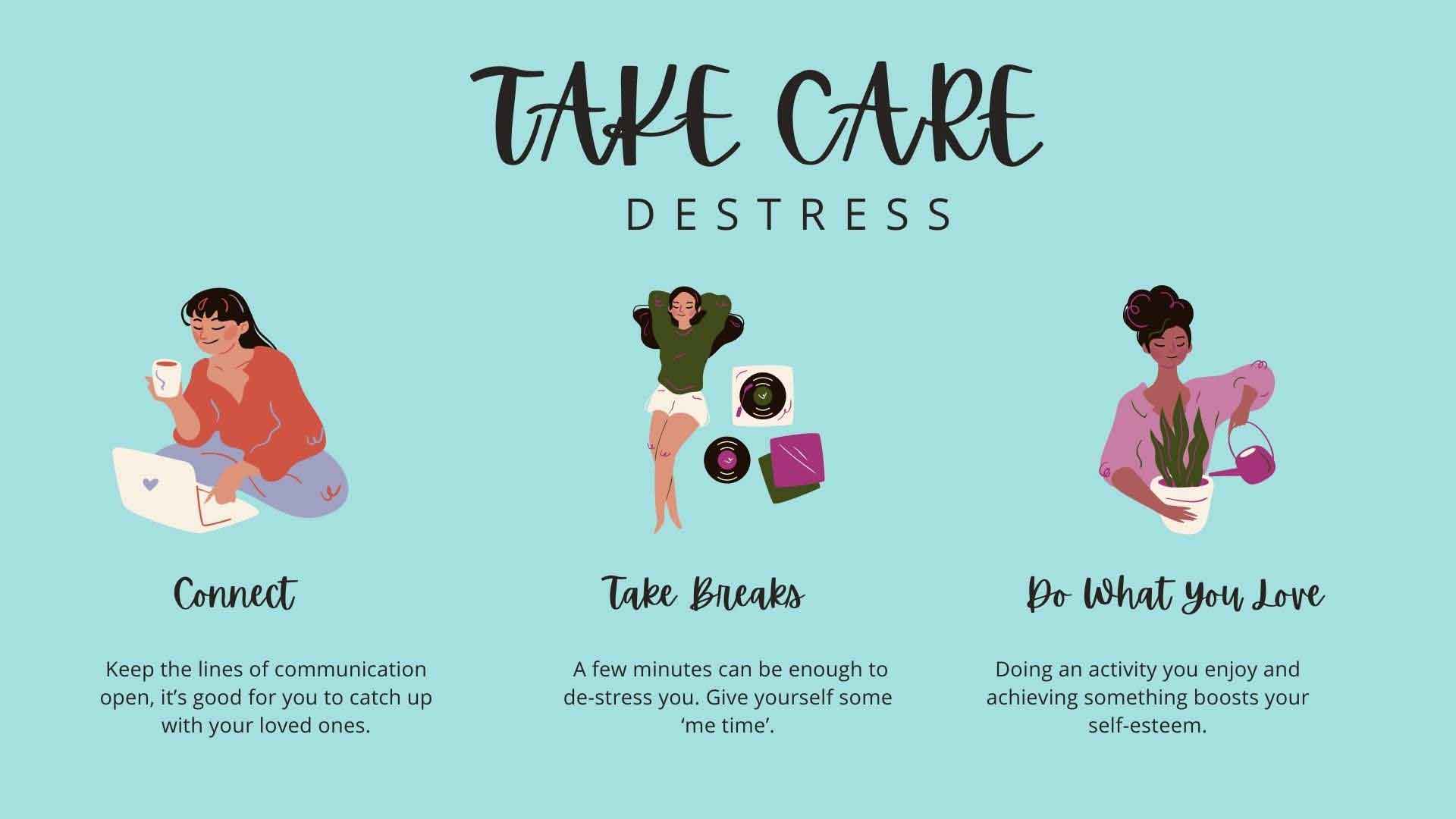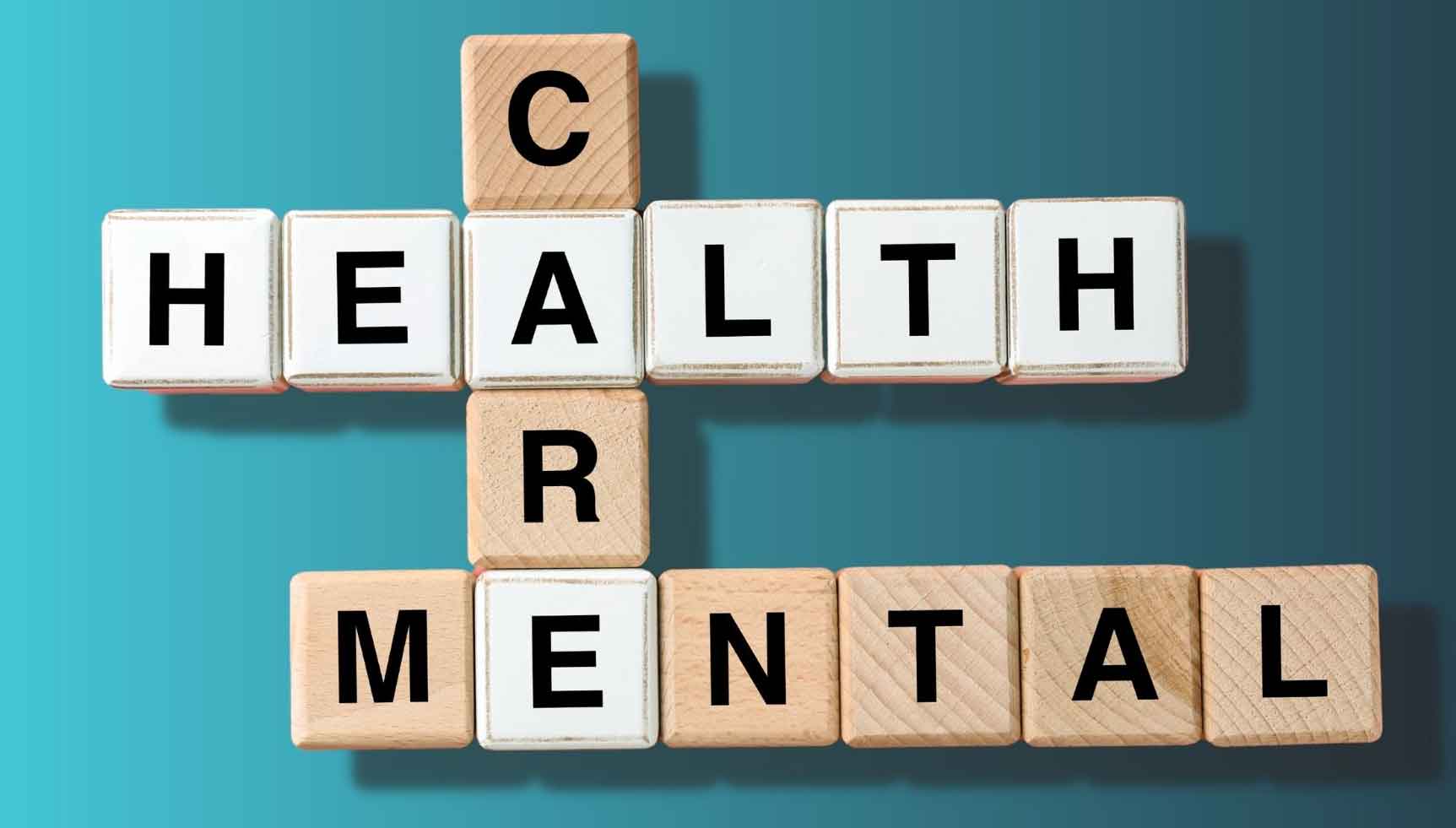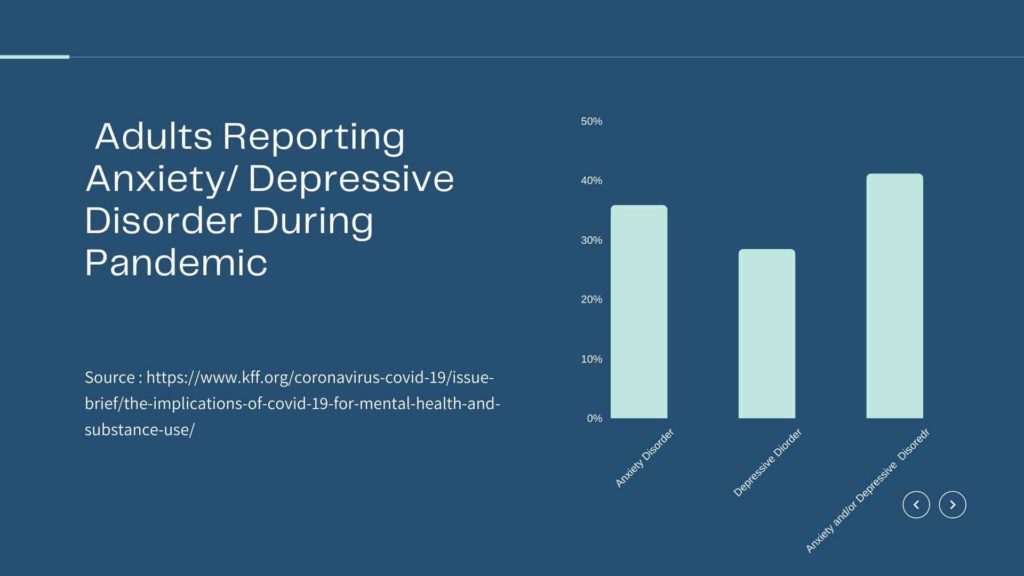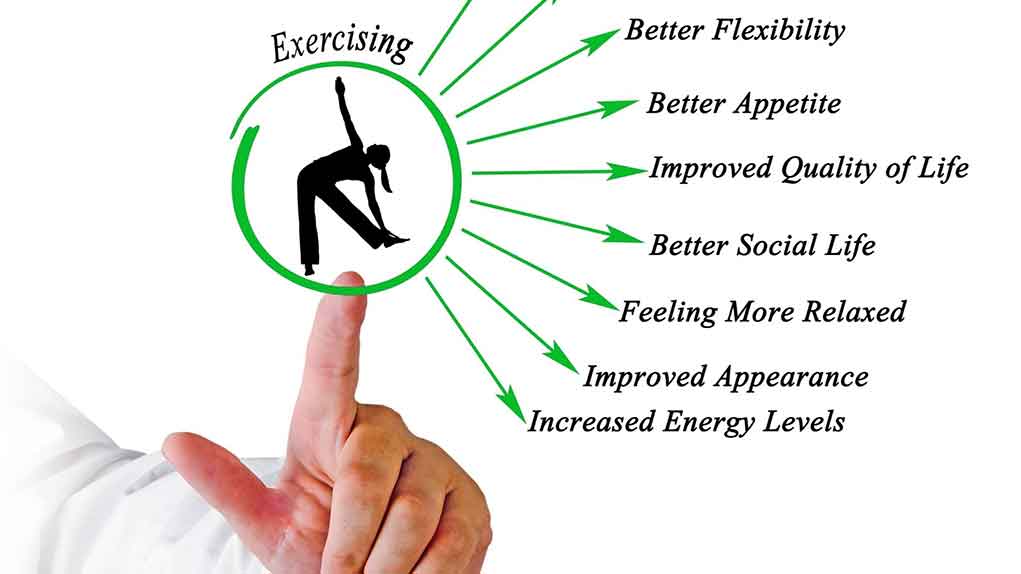But -How Much Do We Know?
Much has been talked about and written about Mental health issues these days. But do we know what exactly is Mental health? It is often misunderstood as a complete absence of disorders and disabilities. However, poor mental health and mental illness are not the same. A person can experience poor mental health and not yet have any mental illness. Anyone diagnosed with a mental illness can experience periods of physical, mental and social well-being .(1) In simple words mental health refers to the overall state of mind. This includes our psychological, emotional, and behavioral patterns. Factors determining mental health include, but are not limited to:
- our ability to cope with the stress and strains of daily life
- the way we deal, react and interact with situations and other people.
How Many?
Mental health affects more people than we would like to believe. According to the Brain & Behavior Research Foundation, one in five people lives with a mental illness. (2) Sadly, the topic is still taboo around the globe. This is due to the social stigma attached to the issue. The fear of being treated as an outcast often leads to the escalation of the disease. The patient suffers alone and avoid any form of professional counseling. Being termed mad, psychotic and social abandonment, forces people to suffer in silence.
Pandemic and Mental Health
The pandemic has further degraded the scenario of mental health worldwide (3). Confinement, curbs on social interactions, travel have affected the mental health of people around the world. Students around the globe are one of the worst-hit. According to UNICEF – more than 1 in 7 adolescents aged 10–19 is estimated to be affected . (4) Absence of practical classroom experience has challenged the cognitive wellbeing of students. Lack of peer support has compounded the issue. Loss of jobs, closures of businesses, and cost cuts have accelerated career and financial stability-related anxieties.
Moreover, the loss of near and dear ones has devastated several families across the globe. According to a survey by KFF Health Tracking Poll, the average Household Depressive or Anxiety Disorder has gone up to almost 41.1% in 2021 as compared to 11% in 2019. (5)
No Need to be Alone
It is time to open up! There is no shame in admitting that we need help. ho doesn’t need support from time to time. It is only human. Even celebrities are not immune to problems related to mental health. The only way we can solve this is to share rely on a support group. Testimony to this was the recent virtual event, held in March 2021. Celebrities ( Talia Jackson, Isaiah Russell, Cameron J. Wright), experts from the John Hopkins HEAT Corps and medical students from Morehouse College got together to talk about youth mental health. World-renowned celebrities like Selena Gomez to Michelle Obama have come out in the open to discuss their personal mental health issues during the COVID-19 pandemic time.
The Pandemic has not even spared the mental equilibrium of the Olympians! Gymnast Simon Biles confessed to suffering from depression due to the burden of “grief, loss and restrictions” during the COVID 19 pandemic. The ICC has disclosed to have psychologists on board to counsel the upcoming T20 World Cup players on mental health issues.
Mental Health – Causes and Symptoms
Mental health is a very complex matter. It is dependent on several external and internal factors. Anyone can suffer from mental issues, irrespective of age and gender. The severity varies from person to person. Some of the most common causes affecting the equilibrium of mental health include, but are not limited to:
- bereavement
- break-ups in relationships
- transfers & work pressure
- financial stress
- physical trauma
- health problems
- career issues etc.
Any situation that demands more than what the brain is ready to cope with can affect mental health. The early signs of mental health could be as common as: (6)
- feeling low
- mood swings
- unnecessary obsessing or fear
- confusion
- lack of concentration
- restless sleeping etc.
It is very important to keep a track of the pattern of any such issues if persist over a period of time. One should pay attention to the root cause of the problem. Instead of ignoring and rejecting, the focus should be on finding the and remedy.
Help is at Hand – Just reach out

There are several holistic options available for your holistic wellbeing :
- Engage in some creative activity. Music, Dance, Color therapy through art classes are great options for de-stressing and relaxing the mind. Join a group therapy class as per your interest and liking.
- Meditate- Benefits of meditation for emotional and mental wellbeing have been scientifically proven. (7) These days, there are a plethora of apps to help you get started. Choose the one that works best for you and reap innumerable benefits of a calm mind. Doing a group chanting/ meditation session may also help in healing.
- Exercise – Exercise regularly to keep yourself physically and mentally strong and confident. Exercising helps in more than one way: (8)
-
- Decreases stress hormones like cortisol. It also increases endorphins. Endorphins are your body’s “feel-good” chemicals. Thus giving your mood a natural boost.
- Physical activity distracts you from negative thoughts and emotions. It can take your mind off of your problems. When you exercise your mind engages in the activity at hand. This flow helps you to get into a zen-like state.
- Promotes confidence. This may sound trivial, but you might feel a subtle but significant boost in your mood. Afterall, who doesn’t when your clothes look more flattering on you? Feel good index definitely goes up with increased strength.
- Helps you lose weight, tone your body, and maintain a healthy glow and a smile.
- Promotes good sleep.
- More than anything else, exercise can be a good source of social support. (9) The benefits of social support are well-documented. Many physical activities can be social activities as well. Exercising with others can give you a double dose of stress relief. So, go ahead join an exercise class, play softball in a league or take part in other team sports.
-
Any form of exercise, right from a brisk walk, yoga, pumping weights in the gym helps to release the Happy Hormones in the body. This works wonders for mental wellbeing. While stress can cause illness, illness can also cause stress. Improving your overall health and longevity with exercise can help you a great deal. In the short run, it prevents stress (by strengthening your immunity to colds, the flu, and other minor illnesses). and the long run (by helping you stay healthier longer, and enjoy life more because of it).
Don’t Isolate Yourself

“You don’t have to struggle in silence. You can be un-silent. You can live well with a mental health condition, as long as you open up to somebody about it.” Demi Lovato
Remember, issues related to mental health can affect anyone – let’s support each other. Together we can win this battle.







